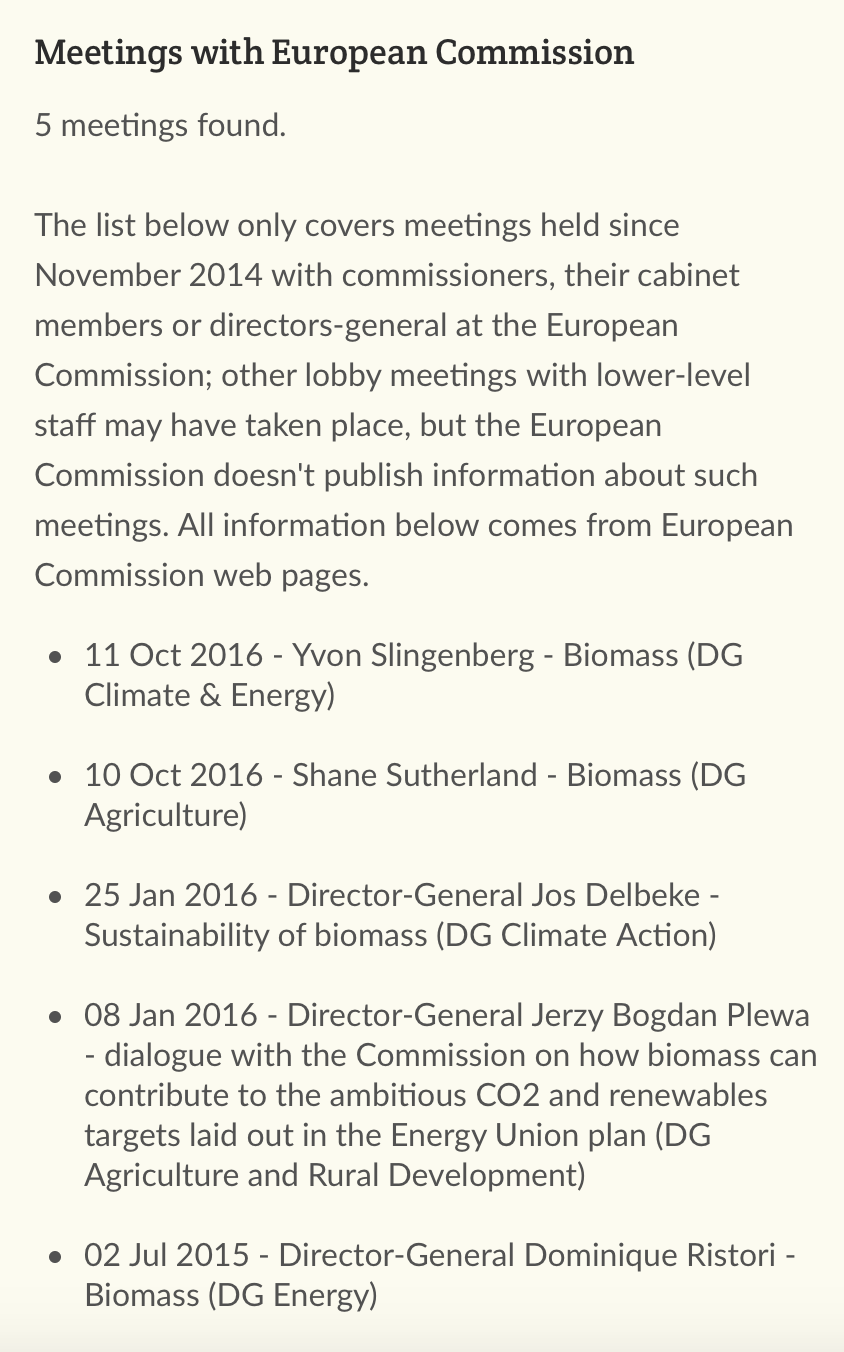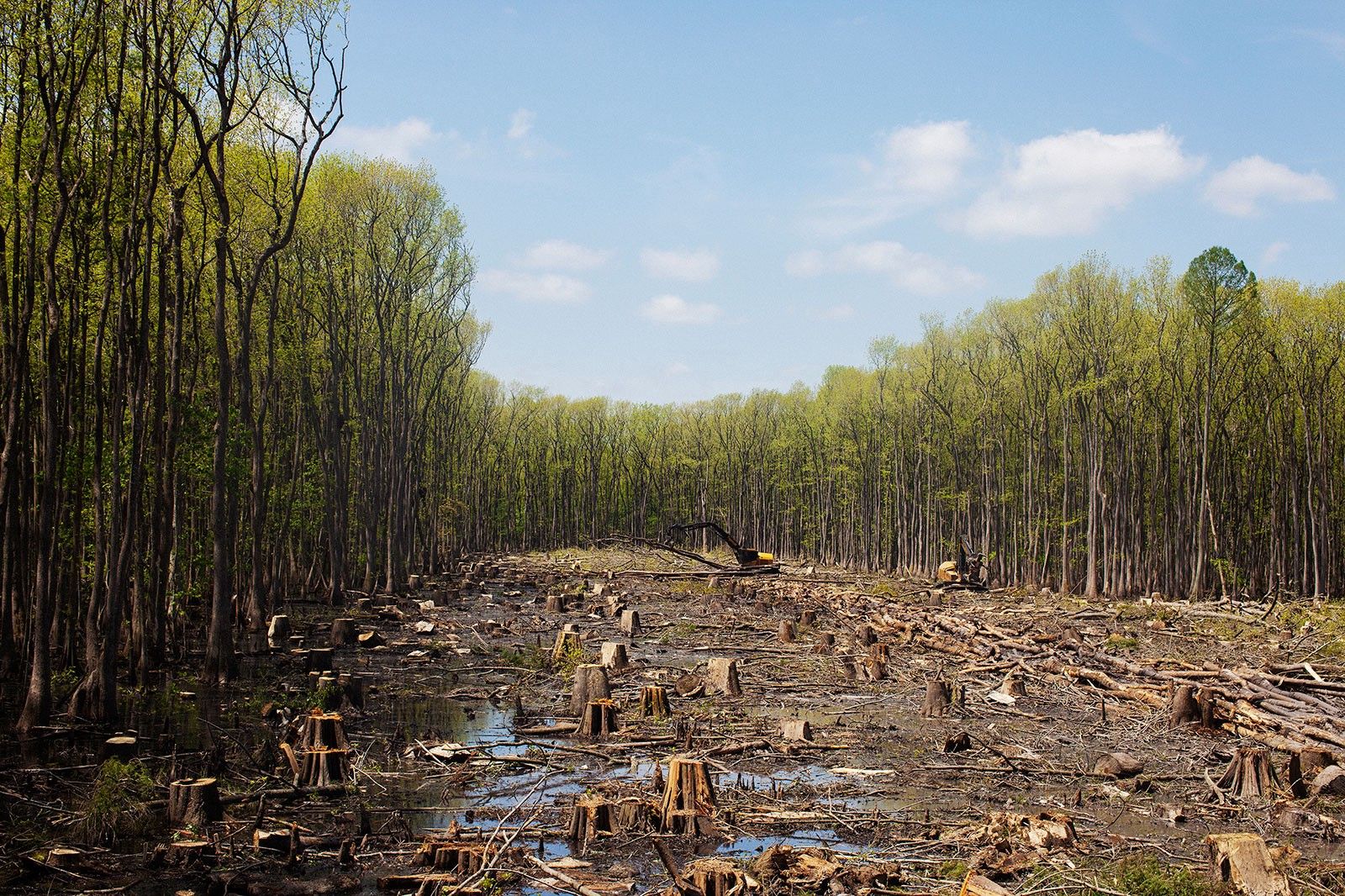The European Commission has announced its new blueprint to phase out coal and energy inefficiencies, while supporting clean energy — but a coalition of civil society groups warns that the revised EU Renewable Energy Directive is fatally flawed.
And guess why? Because certain industries are not going to let go of their profits.
The campaign groups — Global Forest Coalition, Woodland League, Econexus, Biofuelwatch, Transnational Institute, NOAH, Corporate Europe Observatory, and Amis de l’Afrique Francophone-Bénin — point out that in the EU energy plan, bioenergy and waste account for some two-thirds of all energy classed as ‘renewable’. Most of this ‘bioenergy’ will also come from burning wood, both in power stations and for heating.
However, scientific studies increasingly prove that big bioenergy projects produce more greenhouse gases even than traditional fossil fuels.
According to Biofuelwatch, the EU’s cavernous demand for wood to burn for energy is directly tied to the acceleration of logging, land-grabbing from indigenous peoples in countries like Brazil and Ghana, and the conversion of more forests, farmland and grasslands into monoculture tree plantations. This has endangered biodiversity and caused “added harm to forests and people.”
Meanwhile, a new report by the conservation group Birdlife reveals that masses of protected forest areas across Europe are being felled to provide wood for the burgeoning biomass industry.
Nina Holland of Corporate Europe Observatory, which monitors corporate lobbying on EU policymaking, said that the new directive’s promotion of such environmentally damaging forms of energy is a result of intensive lobbying by the wood-burning industries:
“The wood pellet industry has been very actively lobbying the EU Commission when it was revising the Renewable Energy Directive. Big energy and wood pellet companies and their lobby groups, such as the Sustainable Biomass Partnership and the US Industrial Pellet Association (USIPA), repeatedly met high-level Commission staff in the agriculture, climate and energy departments to claim their products are sustainable.”
EU lobbying data confirms that the Sustainable Biomass Partnership, which lobbies for the wood pellet and wood chip burning industries, has held five meetings with the European Commission.

Similarly, EC officials have held six meetings with representatives of Drax Power Ltd — owner and operator of Drax Power Station, the largest power station in the UK. The company is currently executing plans to transition the business to be based predominantly on wood-based biomass.
No wonder the revised directive’s commitment to reducing energy use remains a tepid ‘30% by 2030’. This is “no better than business as usual,” said Adrian Joyce, the secretary general of EuroACE, an alliance of energy efficiency companies.
“The 2020–30 EU Renewable Energy Directive is supposed to be one of the main tools for reducing the EU’s greenhouse gas emissions, yet the proposals are clearly not fit for that purpose,” said Simone Lovera, executive director of the Global Forest Coalition. “They would reduce emissions on paper only, while increasing them in the real world.”
The revised directive is a significant step backward for climate change mitigation efforts. At a time when the world requires the EU’s leadership in confronting fossil fuels, this new plan offers a few welcome steps for real renewables, but overall does too little to curb coal power plants, continues to subsidise them for another decade, and puts dangerous wood-based biomass at the centre of its clean energy strategy.
If the EU plan is all we have to go on, by 2030 Europe will remain largely dependent on fossil fuels, will have failed to sufficiently ramp up its real renewable energy resources — such as solar, wind and geothermal — and meanwhile will have destroyed a significant quantity of its own and the world’s forests, leading to increased carbon emissions and destabilised eco-systems.
In the same period, Europe’s oil outlook is set to dramatically decline. According to a new peer-reviewed study in the journal Biophysical Economics and Resource Quality, by Dr. Michael Dittmars of the Institute of Particle Physics, ETH Zurich, Western European oil consumption will decline in the coming years from 10.5 mbd (2018), 7.1 mbd (2024) to a trifling 4.3 mbd (2030).
It’s difficult to avoid the conclusion that the EU is setting itself up for a series of escalating episodes of energy-economic crisis convergence over the next 15 years.
The businesses capable of surviving in this new era, let alone thriving, will be those that invested heavily in genuinely clean energy technologies.








